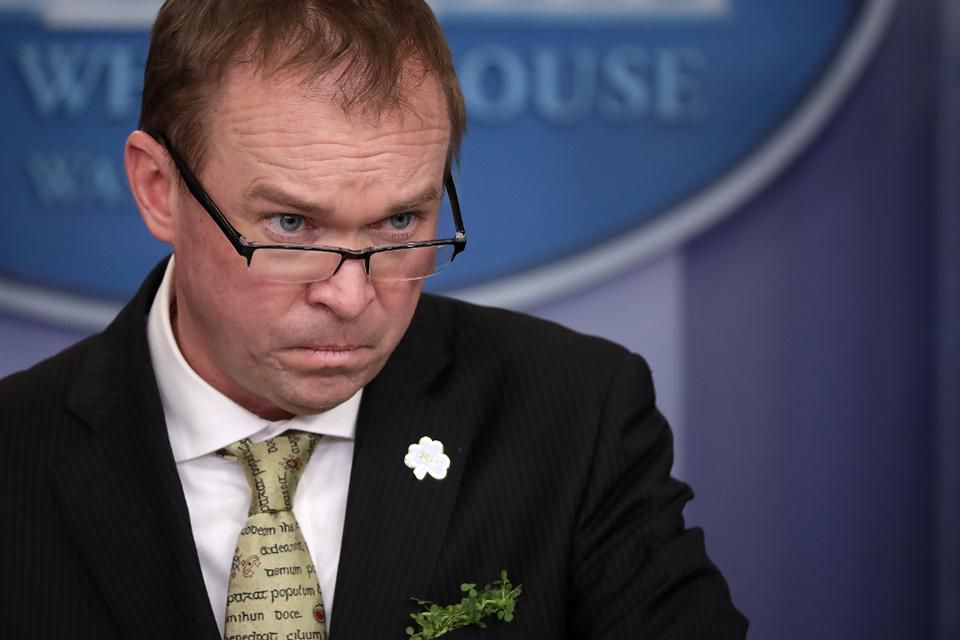
OMB Director Mick Mulvaney, the Trump Administration’s hatchet man to federal employees, testified in Congress this week citing his intention to follow through with a decision to freeze pay for fiscal year 2019. Speaking in grandiose terms and vague language for which this administration is known, Mulvaney claims the pay freeze is necessary to stop some federal employees from getting paid too much, and others from getting paid too little.
His logic confused several members of the House Appropriations Committee—before which Mulvaney was testifying—and follow up questions intended to clarify his reasoning fell short of extricating rational answers from his head. The reason for the pay freeze remains a mystery. Mulvaney also floated the idea of a $1 billion performance pay pool based on a proposed but undescribed system of performance-based pay. No details were provided on how to administer the pay pool nor to whom the funds should be distributed.
On a related note, the Federal Salary Council (FSC) recently approved a report from the FSC Working Group on federal pay, declaring that federal employees on average are paid 32% less than their private sector counterparts. NFFE National President Randy Erwin is a member of the FSC, and NFFE Executive Director Steve Lenkart serves on the FSC Working Group. Based on data gathered and calculated by the Bureau of Labor Statistics (BLS) from the BLS National Compensation Survey, the Working Group presented its formal recommendation to the FSC this month, where the full Council approved its findings.
“It really is amazing that after intense and impartial research on the issue of federal pay, the director of OMB ignores all of it and still supports a pay freeze, offering no further explanation,” stated Erwin. “It’s going to be a long year for us with this kind of back-of-the-envelope leadership at OMB. Fortunately, we are prepared to spend a great deal of effort during Legislative Week in May to help Congress see through Mulvaney’s charade, and we will fight for a pay adjustment in 2019.”
